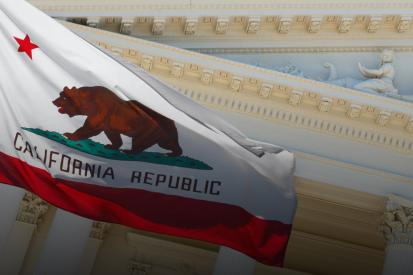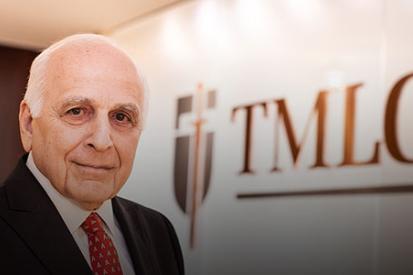Would You Trust California with Handling Private Donor Information?


Today, it seems there are daily examples of people facing public backlash or being forced out of their positions because of statements they made or stances they took in the past.
This is a huge problem for anyone who values a free and open society.
People should be free to speak about the causes they care about. More than that, they should be free to give to causes they care about without the fear that it will destroy their careers.
In our current toxic social climate, expressing your views can be dangerous. It makes sense that some donors prefer to keep private the names of the nonprofit organizations to which they give.
But some officials in the state of California wanted to make donor privacy a thing of the past. Thankfully, the Thomas More Law Center (TMLC) and another nonprofit organization took a stand. And in 2021, the U.S. Supreme Court issued an opinion in their combined cases in Americans for Prosperity Foundation v. Bonta.
Read more about this important case below.

What is Thomas More Law Center?
The Thomas More Law Center (TMLC) is named for 16th-century English statesman Sir Thomas More, who famously chose public execution over betraying his conscience. Today, TMLC supports those who want to live by the same principles as More did. Its mission is to be the “sword and shield” for people of faith, to promote faith and family values, and to protect the sanctity of human life.
As a nonprofit organization, TMLC relies on the support of donors from across the country to operate. And though located in Michigan, TMLC receives some donations from California, the nation’s most populous state.
But in 2012, California officials told TMLC that it had to hand over sensitive donor information or stop fundraising in the state altogether.
Thomas More Law Center v. Bonta
In March 2012, California officials contacted TMLC and demanded that it hand over private information on its top donors to the state Attorney General’s Office. TMLC was perplexed. California had never required it to turn over that information before.
But in 2010, the AG’s office had changed its rules to require hundreds of nonprofits across the country that fundraise in California to disclose the names and addresses of their largest donors every year.
TMLC was concerned about this sudden change and for its donors’ privacy.
The California Attorney General’s Office is not exactly known for its ability to keep data private. In fact, it has a reputation for the opposite, leaking confidential information like a sieve.
In 2009, employees mislabeled nearly 1,800 confidential Schedule B tax documents as “public” and made them available to anyone online. In a separate incident, all the Registry of Charitable Trusts’ confidential documents could be accessed online simply by altering a single digit at the end of each document’s URL.
Some government authorities—like the IRS—may have a consistent record of keeping donors’ confidential information secure. But the California Attorney General’s Office is not one of them, and its inexcusable negligence puts people’s jobs and lives at risk. Donors, employees, and clients of nonprofits like TMLC have faced intimidation, death threats, hate mail, boycotts, and even an assassination plot from ideological opponents. If information about TMLC’s donors became public, there could be grave consequences.
California’s requirement that nonprofits like TMLC annually hand over their major supporters’ names and addresses to fundraise in the state is unconstitutional. It violates the freedom of association protected by the First Amendment.
So, TMLC challenged the Attorney General’s Office's disclosure requirement in court.
Case timeline
- March 2012: The California Attorney General’s Office first asked TMLC to hand over its sensitive donor information.
- March 2019: The U.S. Court of Appeals for the Ninth Circuit ruled against TMLC, side-stepping relevant precedents in the process.
- August 2019: TMLC asked the United States Supreme Court to take up its case.
- January 2021: The Supreme Court agreed to hear the case.
- April 2021: The Supreme Court heard oral arguments in Thomas More Law Center v. Bonta, which was combined with a similar case, Americans for Prosperity Foundation v. Rodriquez.
- July 2021: The Supreme Court ruled in favor of TMLC, protecting donor privacy rights for all Americans.
Outcome
California’s blanket demand for the names and addresses of nonprofit supporters is dangerous, unnecessary, and uncalled for.
Nonprofits like TMLC haven’t done anything wrong. And what’s more, California is unlikely to use any of the information it gains from this process. In the past decade, the Attorney General’s Office has used less than one percent of such information. Worse, the California Attorney General’s Office leaks confidential records like a sieve—and that’s especially dangerous for givers, employees, and clients of nonprofits like TMLC who have faced intimidation, death threats, hate mail, and boycotts from ideological opponents.
Not only was California’s demand for donor names uncalled for; it was a violation of the freedom of association.
Thankfully, the Supreme Court ruled in TMLC’s favor, sending a clear message: it is unconstitutional to force nonprofits to reveal their donors’ private information en masse.
This ruling upholds a 60-year-old precedent in NAACP v. Alabama, in which the Supreme Court rebuked Alabama for demanding that the NAACP hand over its membership lists—exposing their members to harassment and violence.\
The bottom line
Every American should be free to support causes they believe in without fear of harassment or intimidation. Everyone deserves a voice, not merely those able to weather abuse.
Learn more:
Why you should care about this historic Supreme Court win:
Details on the history of Thomas More Law Center’s case:
